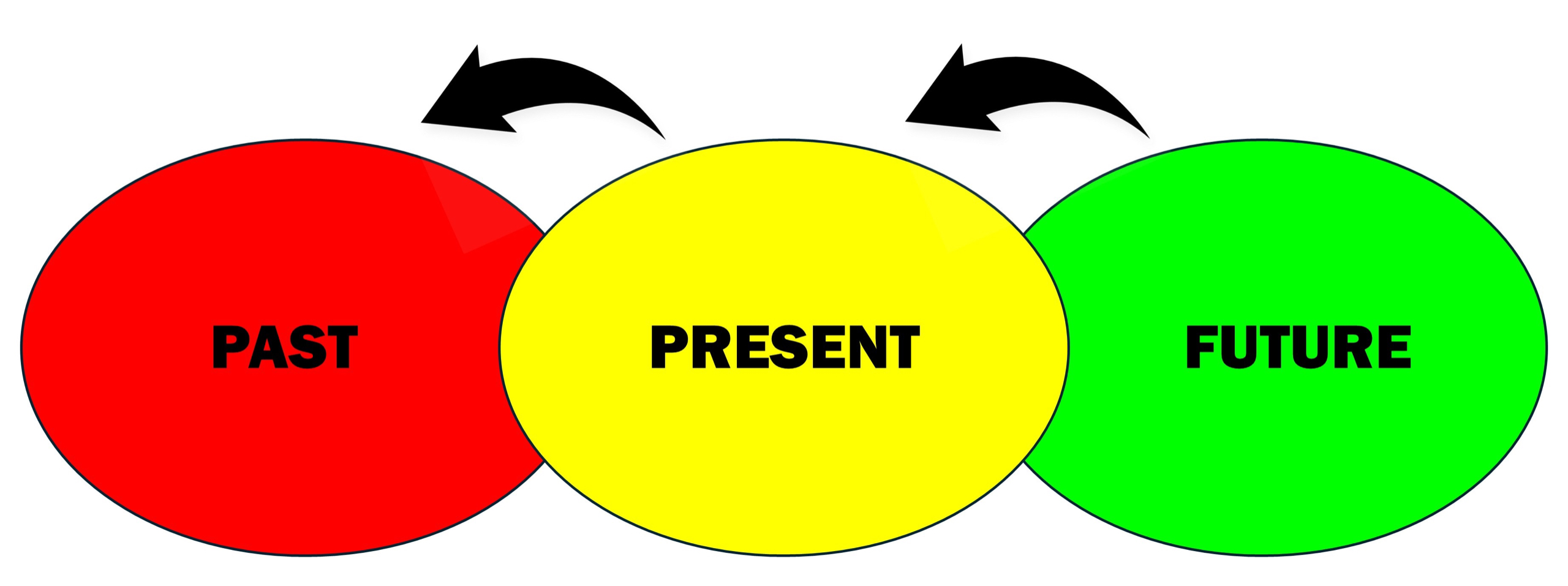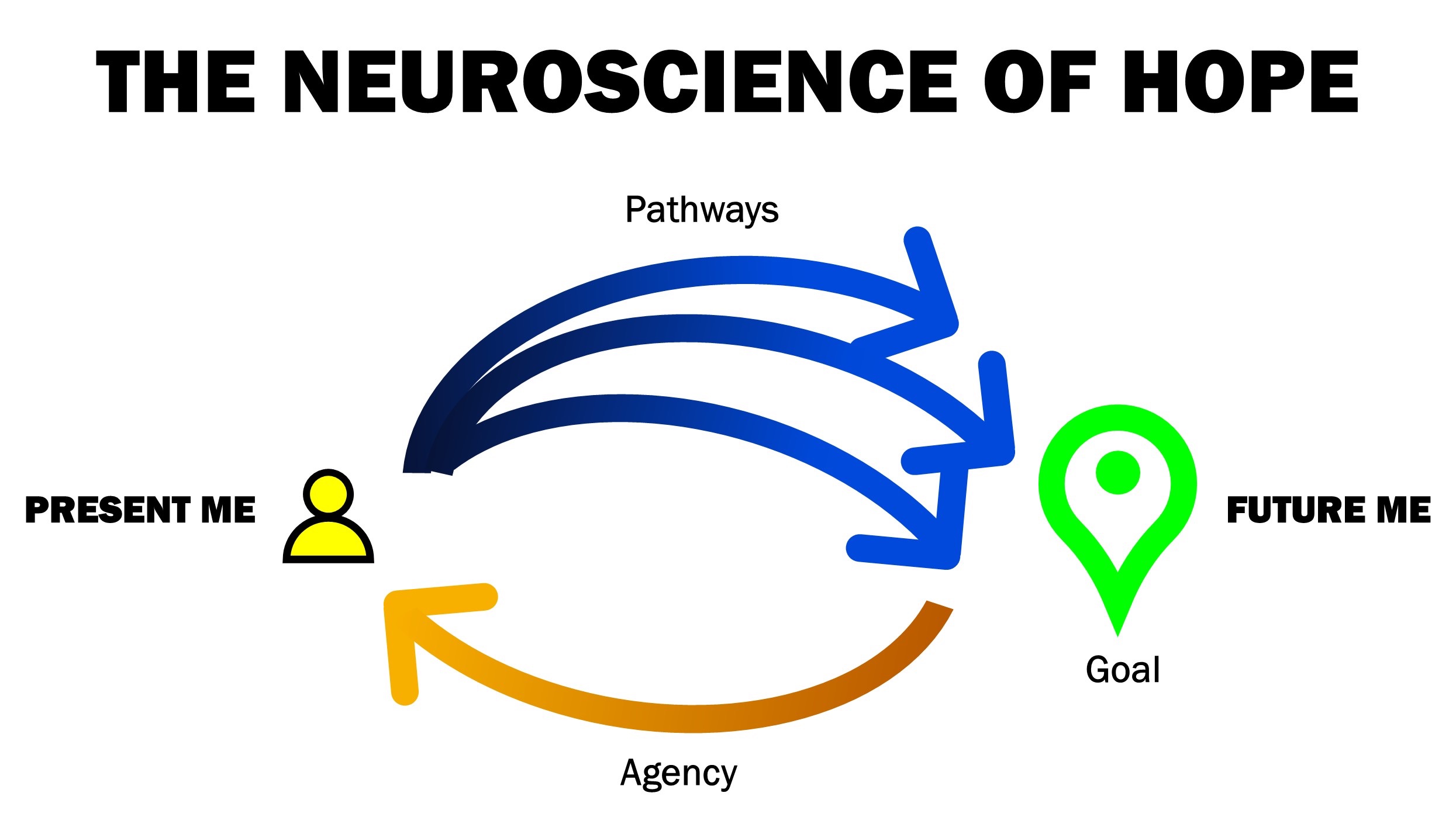
Future Me Advisor
Guiding Your Future With Strategic Hope
Whenever we’re feeling less-than-hopeful about something, there’s a quick check-in we can do to dramatically boost our hope levels.
It only takes a few minutes to take the Hope dial and crank it up to 11.
You see, there are people who study this kind of thing—The Science of Hope.
And through their research, they distill the most essential bits we need to know into easy to understand frameworks.
G.A.P. = Goals + Agency + Pathways
Hope has three parts: Goals + Agency + Pathways. (Which forms an easy to remember acronym: GAP.)
First, we have Goals. When we feel most hopeful, we’re in pursuit of a clear goal of the future that’s better than the present. The Goal is self-concordant. It’s an authentic desire—something we really want to create in our lives—not merely something we feel like we “should” have or are “supposed to” want in life. When we don’t have a goal that feels authentically inspiring, our hope drops through the floor. But when our goals light us up, we’re filled with energy to move towards them.
Second, there’s Agency. Which means we believe we have the ability to influence making that future vision a reality. We feel a sense of internal power. And we embrace how the actions we take can contribute to reaching our Goal. When we don’t feel much agency, we feel stuck, and fall into hopelessness. But when our agency is high, we know we have what it takes to reach our goals.
And third, we’ve got Pathways. Which is all about optionality—knowing that there are many different routes we can take to reach our goals. When it feels like there’s only one path we can take to reach a goal, it feels like we’re walking a tightrope. One wrong move and we’re toast. But when we know there are countless paths we can take to reach our destination, it’s easy as a Sunday drive. Doesn’t matter if there’s some road construction along the way, because there are plenty of other streets we can take to get there.
Pretty cool, huh?
Three variables: Goals + Agency + Pathways.
Now that we know them, let’s explore a little more about how we can understand our hope levels. And use that understanding to boost our hope to new heights.
Tools To Boost Your Hope
We can take each variable one by one.
1 – Dream Bigger! Oftentimes we don’t give ourselves permission to dream bigger. It can feel vulnerable to state our deepest, most authentic desires. We might feel guilty or ashamed for wanting the things we want in our lives.That’s a good sign. So let’s give ourselves permission to be a little unreasonable in what we go for in life. As one of my coaches once counseled me: “Be careful what you wish for…because you just might get it.”
2 – Short story: instead of trying to get it perfect, take some of the pressure off of our dreamer by asking yourself “Wouldn’t it be cool if…?”. Check out the article for more!
3 – Use your body as a compass. Our most authentic desires fill our bodies with a sense of energetic aliveness. As you scan for what you want, pay attention to what you feel in your body. Is it kinda dull and “blah”? Or does it feel electrifying, enlivening, and edgy? The closer we are to the latter, the more hopeful we’ll feel.




